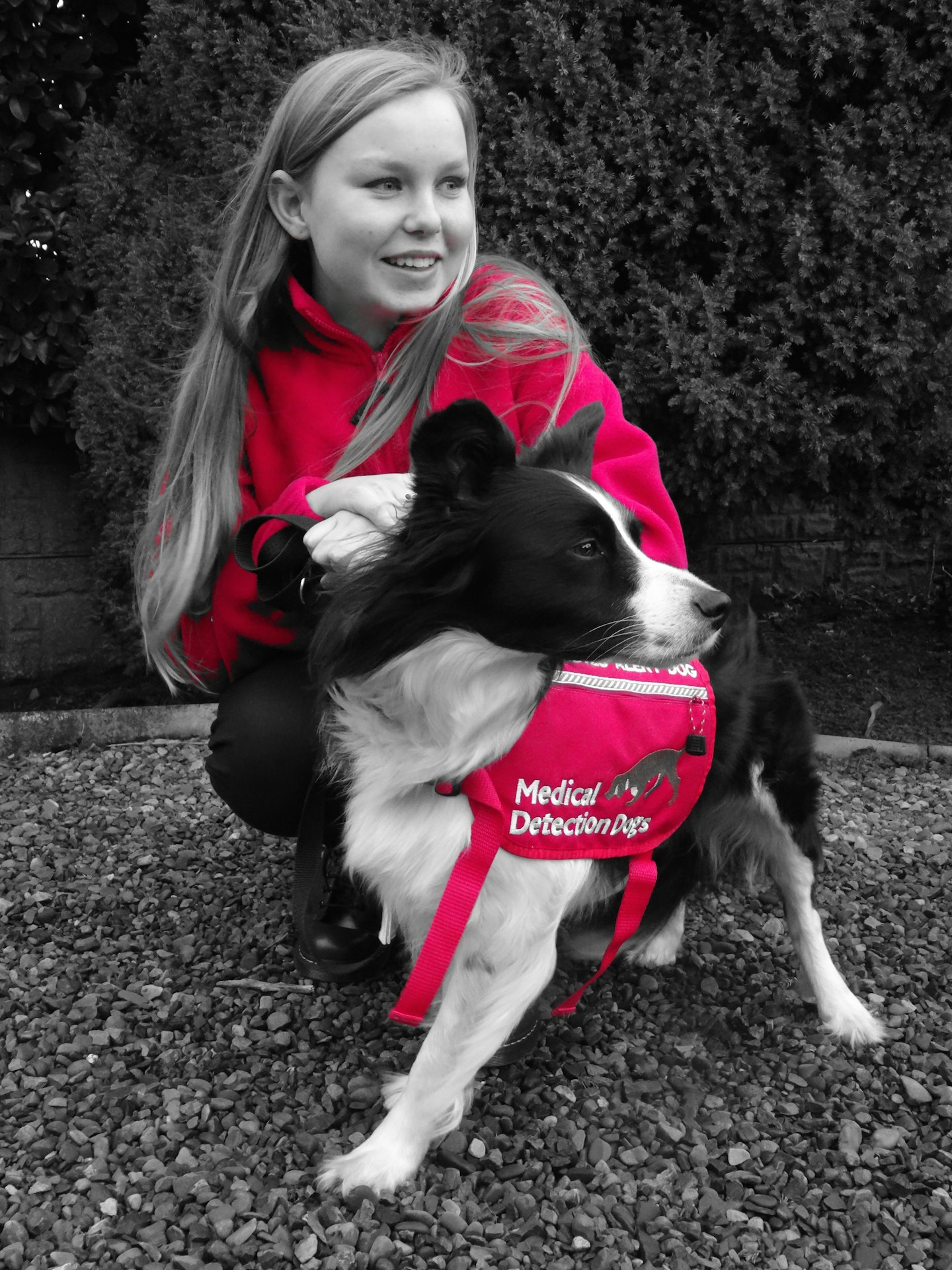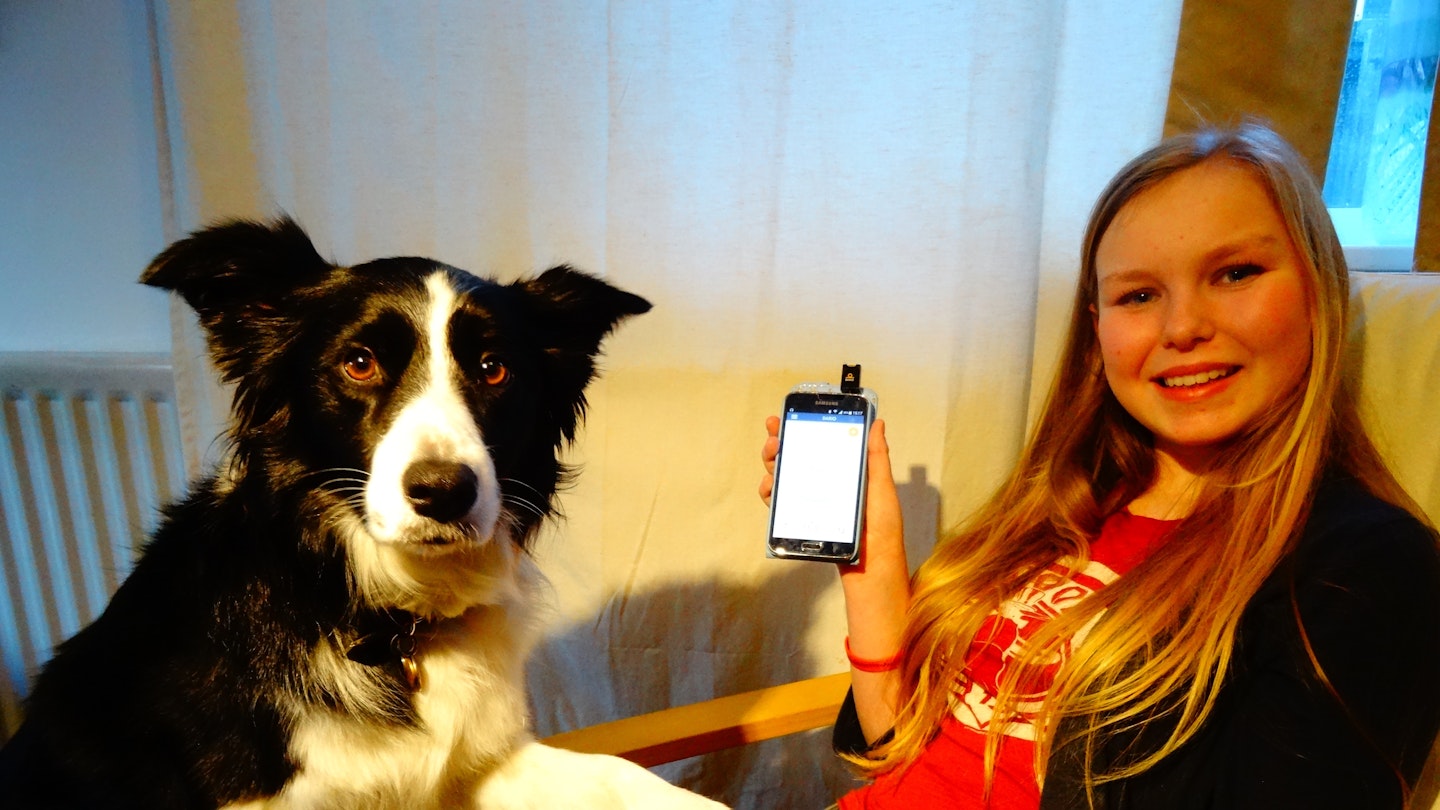Diabetes is a lifelong condition that causes a person’s blood sugar level to become too high, and there are almost 4 million people living with the disease in the UK.
By sniffing Katie’s breath, Pip can tell if her sugar levels are too high or too low, and if it is, she will bark or go and retrieve Katie’s medical pack so that she can take her insulin.
Amazingly, 13 year old Katie taught Pip how to do this herself.
Katie had heard of animals being able to detect illness in humans and by researching into the training process, she discovered Medical Detection Dogs charity.

In a BBC interview, Katie explained how Pip detects if something is wrong: “When my blood sugar goes to high or too low, I give off an odour. But no one else can smell it, only dogs can because their scent is up to a billion times better than ours.”
Speaking proudly of her daughter, Katie’s mum Christine said: “Katie researched all the techniques and ways to teach dogs about scent levels all by herself.
Pip is a constant companion for Katie and has got her through the worst times, it’s an amazing relationship they have.”
After Katie trained her dog, Pip took her exams and is now a credited Medical Assistance Dog!

As well as Type 1 diabetes, Katie also suffers from a chronic pain condition, and after nearly missing a year of school, is now home educated.
Katie used to feel self-conscious about checking her levels and was often faced with comments from teachers to “stop faffing around”.
As well as her furry friend of four years helping to detect her glucose levels, Katie also uses the Dario Smart Meter, which turns her smartphone into a diabetes monitor and management platform.
Medical Director of Dario, Dr. Moshe Kamar, explained why it is important for diabetics to measure their insulin levels, saying: “If you have insulin dependent diabetes, self-testing your blood sugar (blood glucose) is very important in managing your treatment plan and preventing long-term complications of your condition.
“When blood glucose levels remain too high for too long (hyperglycemia or high blood sugar), it can cause serious problems including heart disease, blindness, impotence and stroke. The opposite problem (hypoglycemia or low blood sugar) can be just as serious, leading to neurological impairment, seizures, unconsciousness, brain damage or even death.”
We think Katie’s story is truly inspirational, don’t you?
If you want to know more about diabetes, see the NHS website here.
